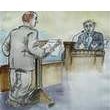Is a illegitimate child eligible for grandfathers property
 Devanand
(Querist) 14 February 2012
This query is : Resolved
Devanand
(Querist) 14 February 2012
This query is : Resolved
Dear Sir,
1. Would like to know whether an illegitimate child who was allowed maintainence by the court during his child hood eligible for grand fathers property. The chile now is a major and has an income of his own.
2. Grandfather had agricultural land of 55 acres wherein a decree was passed and 26 acres was allowed to be shared between fathers and sisters (totally 2 brothers and 3 sisters are heirs to the property).
3. No probably the father can get 5 to 6 acres of land with the illegitimate child eligible for fathers property the court order was passed on 16/1/2012.
Please clarify the legal status
 Tajobsindia
(Expert) 14 February 2012
Tajobsindia
(Expert) 14 February 2012
Sometime in April 2001, the Hon’ble SC has held that under the Hindu Marriage Act (HMA), illegitimate children are entitled to all rights in the property of their parents, both self-acquired and ancestral. A Bench of Justices G.S. Singhvi and A.K. Ganguly, hearing an appeal by Revanasiddappa, differed with earlier judgments in interpreting S. 16 (3) of the HMA that “such children are only entitled to the property of their parents and not of any other relation.”
Stating that it was constrained to take a different view, the Bench referred the matter to Chief Justice S.H. Kapadia for posting it before a larger Bench. The Bench said, “The relationship between the parents may not be sanctioned by law but the birth of a child in such relationship has to be viewed independently of the relationship of the parents. A child born in such relationship is innocent and is entitled to all the rights, which are given to other children born in valid marriage. This is the crux of S. 16 (3).”
Writing the judgment, Justice Ganguly said that under S. 16 (1) and 16 (2), it was expressly declared that children born in a void or voidable marriage, (viz. second marriage) should be legitimate. “If they were declared legitimate, then they cannot be discriminated against and they will be on a par with other legitimate children and be entitled to all the rights in the property of their parents, both self-acquired and ancestral.”
The Bench said: “the prohibition contained in S. 16 (3) will apply to such children with respect to property of any person other than their parents. We find it interesting to note that the legislature has advisedly used the word ‘property' and has not qualified it with either self-acquired property or ancestral property. It has been kept broad and general.”
Underlining the need for a liberal interpretation of S. 16 (3), the Bench said: “with changing social norms of legitimacy in every society, including ours, what was illegitimate in the past may be legitimate today. The concept of legitimacy stems from social consensus, in the shaping of which various social groups play a vital role.”
Quoting an earlier judgment, the Bench said: “the HMA intends to bring about social reforms and conferment of social status of legitimacy on innocent children is the obvious purpose of S. 16. This is a law to advance the socially beneficial purpose of removing the stigma of illegitimacy on such children who are as innocent as any other children.”
“However, one thing must be made clear that the benefit given under the amended Section 16 is available only in cases where there is a marriage but such marriage is void or voidable. In the case of joint family property, such children will be entitled only to a share in their parents' property but they cannot claim it on their own right. Logically, on the partition of an ancestral property, the property falling in the share of the parents of such children is regarded as their self-acquired and absolute property.”
Right to property
The Bench quoted Article 39 (f) of the Constitution which says “that children are given opportunities and facilities to develop in a healthy manner and in conditions of freedom and dignity and that childhood and youth are protected against exploitation and against moral and material abandonment. Right to property is no longer fundamental but it is a constitutional right and Article 300A contains a guarantee against deprivation of property right by authority of law.”
Since there was no restriction imposed in S. 16 (3), such children would have a right to whatever “becomes the property of their parents whether self-acquired or ancestral,” the Bench said.
 Devanand
(Querist) 14 February 2012
Devanand
(Querist) 14 February 2012
dear tajobsindia thanks for the reply what if the case is of an intercaste marriage, the mother is a hindu and the father is a christian does the judgement hold good
 Devanand
(Querist) 14 February 2012
This query is : Resolved
Devanand
(Querist) 14 February 2012
This query is : Resolved
 Devanand
(Querist) 14 February 2012
Devanand
(Querist) 14 February 2012
